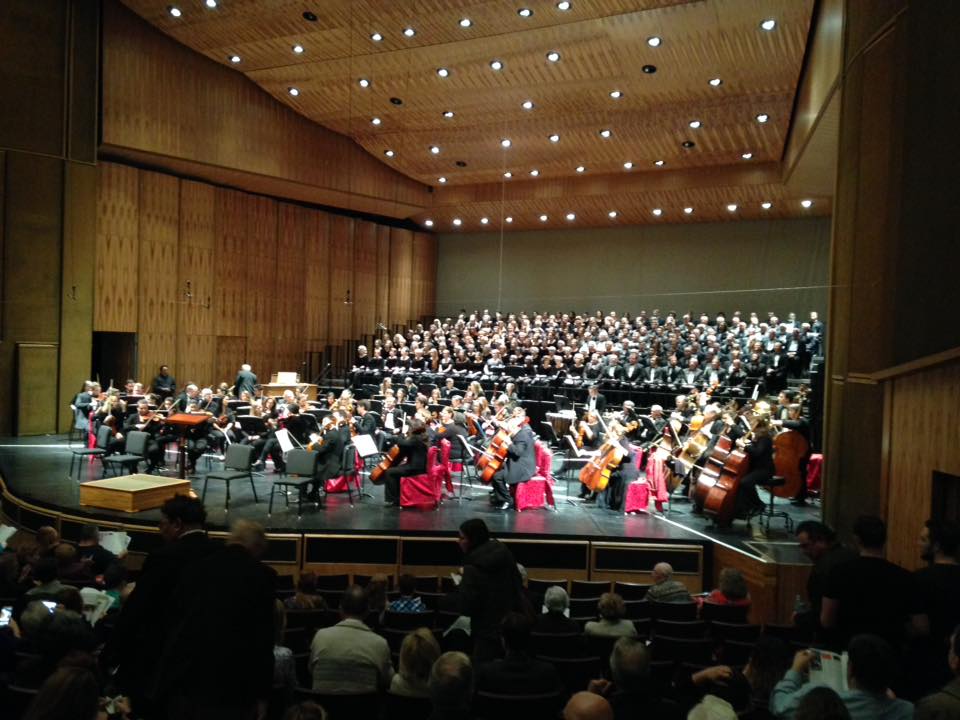by Daniel Hathaway

Elijah raises a widow’s son from the dead, brings rain to the parched ground of Israel during a famine, holds a contest with the priests of Baal to prove whose god is really in charge, sojourns on the mount of Horeb to come face to face with the God of Israel, and finally ascends to the heavens in a chariot of fire.
These elements, drawn from the Hebrew books of Kings and Psalms, provided Mendelssohn’s librettist with all the material for a riveting 19th-century oratorio, along with a bit of Victorian religiosity. The composer commanded a variety of musical styles ranging from the intensely dramatic (the Baal scene and the theophany on the mountain) to the sweetly sentimental (some of the reflective arias). Wilkins paced the story masterfully, making the most out of its dramatic moments and moving its treacly passages along.
The Akron Symphony Chorus, Summit Choral Society’s Masterworks Chorale and Children’s Choir, and singers from the University of Akron — all prepared by Marie Bucoy-Calavan — represented at various points in the narrative the people of Israel, the priests of Baal, and angels, and in all cases produced a glorious, robust sound. A semichorus was in charge of certain passages (the “Holy, holy, holy” on Mount Horeb), providing a nice contrast in texture. The children’s ensemble, hidden away in Thomas Hall’s balcony, made a lovely cameo appearance as angels in “Lift thine eyes.”
The other vocal duties fell to Elijah — baritone Brian Keith Johnson — and the other members of the fine quartet of soloists: soprano Kathryn Papa, mezzo-soprano Kim Lauritsen, and tenor Timothy Culver. All brought clear, vivid vocal tone and enunciation to their roles, but Johnson was a standout. His is not a large, booming voice, but he knows how to use his instrument to excellent advantage in the vast E.J. Thomas space, as he did in “Is not his word like a fire?” In two nice touches, Johnson had memorized his opening prophecy, and later vanished from the stage when Elijah was taken up into the heavens.
An especially striking moment involved young soprano Amber Cocchiola, who suddenly appeared in a spotlight from a corner of the Grand Tier to dialogue with Obadiah and Elijah. Her lucid, clarion tone rang out brilliantly into the hall.
The Akron Symphony provided excellent support for all the singing in Elijah, but a special bow goes to the trombones, who surrounded divine pronouncements with a golden halo. And to organist Robert Mollard, who gave tasteful boosts to the orchestral timbre at important points in the score. Late in the oratorio, oboist Terry Orcutt and clarinetist Kristina Jones contributed handsome solos to “For the mountains shall depart” and “Then shall the righteous shine forth.”
This final concert was surely one of the highlights of the Akron Symphony’s season. What could have made it any better? Supertitles instead of printed librettos would have reduced the shuffling of stapled papers and allowed the audience to concentrate more of their attention on the stage. Besides — who can read all that small print when the lights are turned down?
Published on ClevelandClassical.com May 9, 2017.
Click here for a printable copy of this article


